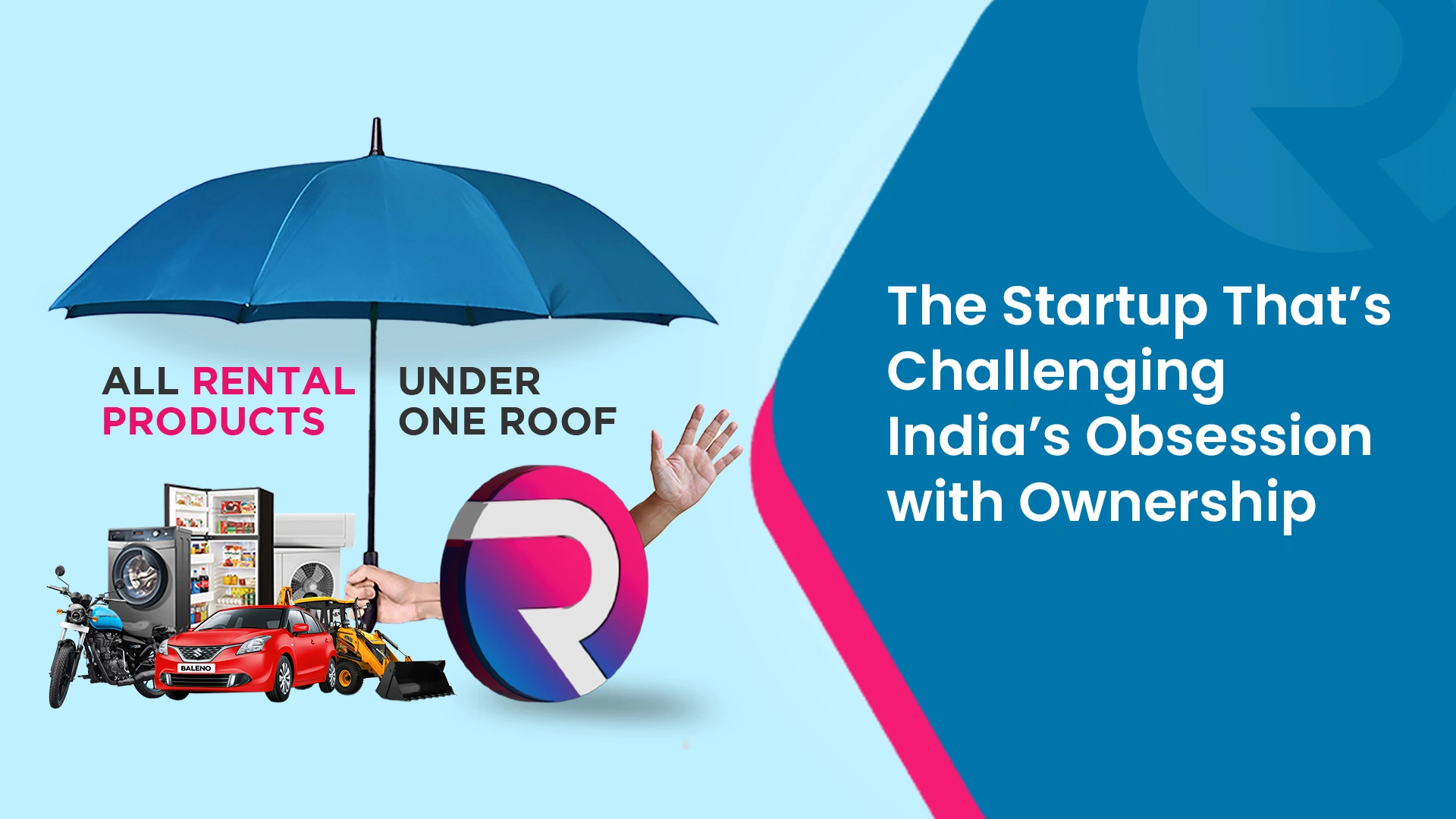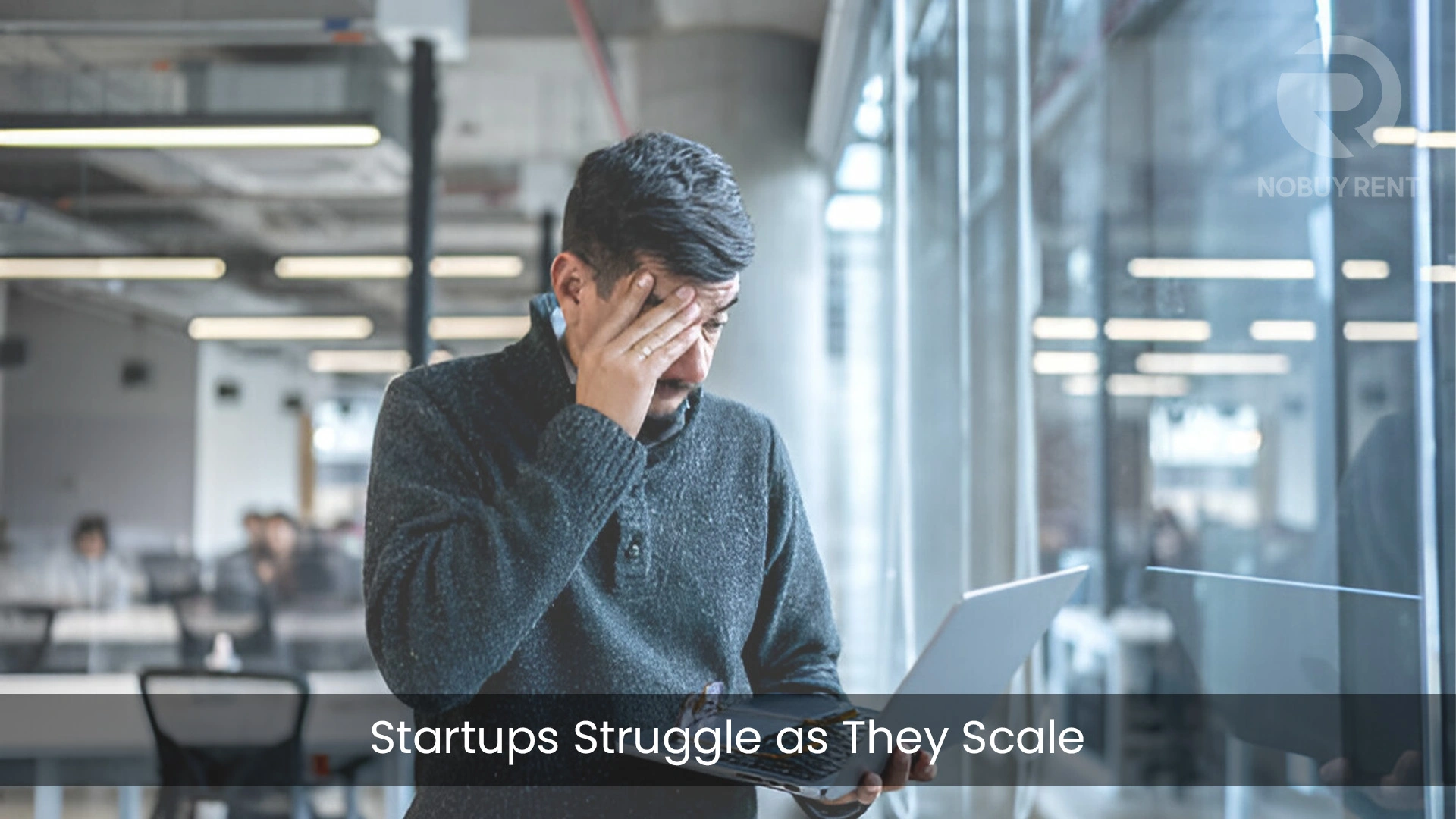
Why Indian Startups Are Obsessed with Ownership?
Start-ups are booming across sectors, from mobility and ed-tech to fintech and logistics, India is witnessing a rapid growth of entrepreneurship like never before. Yet, one deep cultural mindset still holds many back
In India, ownership has always been a badge of success. Whether it is real estate, cars, offices, or even laptops and equipment—startups struggle to buy assets as they scale. This is because they believe that owning means stability, control, and saving in the long run.
But in practice, high-growth startups get severely stuck when they lock up significant amounts of capital in assets that they own. They get locked down, cash-constrained, and find themselves hard to scale.
Ownership Pains: Why Startups Struggle as They Scale

Here are some critical pain points that stem from a rigid ownership model:
1. High Capital Investment
Startups usually have narrow budgets, particularly in the early stages. When capital is sunk in tangible assets such as equipment for technology, warehousing, or office furniture, it confines their runway and cash flow, exposing them to emergencies.
As per a NASSCOM Startup Report (2023), more than 62% of startups that shut down mentioned inadequate cash flow and working capital problems as one of the prime reasons for shutdown.
2. Lack of Agility
Ownership binds startups with long-term commitments.. Whether it’s a 3-year office lease or owning a fleet of delivery vehicles, such commitments make it hard to pivot or adapt quickly to market changes.
3. High Depreciation and Maintenance
Technology and equipment depreciate rapidly. A ₹10 lakh investment in laptops or servers may be worth just half in two years. Add to that the maintenance costs, and ownership becomes a money-draining trap.
Usership Over Ownership – A Smarter Alternative
Enter the concept of usership, a model where businesses rent or lease assets as needed, instead of owning them.
A rising number of startups are adopting this model to stay lean, agile, and focused on their core offerings. One such game-changer in India is NobuyRent, a P2P rental platform that's enabling businesses to rent high-quality products and services without burning capital.
How Usership Empowers Startups to Scale Smarter
1. Capital Efficiency
With usership, startups don’t need to shell out lakhs upfront. They can pay-as-they-go, freeing up capital for growth, hiring, and marketing.
A Harvard Business Review article notes that startups using asset-light models grow 30% faster than traditional ownership-heavy businesses.
2. Flexibility to Scale
Need more workstations during a hiring spree? Or a temporary DSLR setup for a marketing campaign? Usership allows companies to scale assets up or down depending on project needs and seasonality.
3. Reduced Risk
Renting removes the risk of depreciation and obsolescence of assets. Startups can upgrade equipment or change equipment when necessary keeping up with technology advancements.
4. Greener, Sustainable Choice
Usership promotes a circular economy. There are fewer products being made and wasted, lessening the carbon footprint. Sustainability has become a competitive advantage, particularly for ESG-aware investors and consumers.
Meet NobuyRent – India’s Pioneering Usership Platform
NobuyRent is a startup disrupting the rental ecosystem in India. Through offering a frictionless platform for peer-to-peer rentals, it unites asset owners with renters across categories such as:
- Electronics (Laptops, Tablets, Projectors and etc)
- Furniture (Office desks, Chairs and etc)
- Event Equipment (Audio systems, Photography gear and etc)
- Vehicles and more
What Makes NobuyRent Unique?
- Verified Listings: All items listed are thoroughly verified for quality.
- Secure Secure Transactions: Payments are safe and friction-less.
- Green Model: Minimizes demand for new production, encouraging reuse.
NobuyRent's platform saves companies up to 70% in initial costs, while providing unparalleled flexibility in operations.
Real-World Use Case: A Startup’s Journey with Usership

Let’s take the example of “PixelFarm,” a creative design agency in Bengaluru. In its early days, PixelFarm bought high-end iMacs, studio lights, and conference tables—all of which ate up ₹15 lakhs of its seed fund.
Within a year, the team realized:
- They rarely used half the gear.
- They couldn’t upgrade systems frequently.
- Cash flow became tight.
In their second year, they discovered NobuyRent and transitioned to renting laptops, cameras, and furniture. The results?
- Monthly costs reduced by 40%
- Equipment upgrades every 6 months
- Zero depreciation worries
They now focus on their clients, while NobuyRent handles the rest.
The Future of Usership in India’s Startup Ecosystem
As Indian startups mature, they’re realizing that owning everything is not the smartest path to success. Instead, asset-light models powered by usership platforms like NobuyRent are emerging as the smarter, scalable choice.
Key Trends:
- Venture Capitalists favoring capital-light startups
- Remote/hybrid work models increasing demand for flexible assets
- Environmental regulations nudging companies towards sustainability
A PwC India report (2024) predicts the rental economy will grow to $40 billion by 2030, with a significant share from B2B usership.
Conclusion: Ownership Is Out. Usership Is In
Those "Buy First, Think Later" days are expired.
In today's rapidly growing business environment, startups should be stable, affordable, and practical. Usership makes all that possible, while being sustainable and futuristic.
Companies such as NobuyRent are spearheading this revolution, giving entrepreneurs the power to create leaner, smarter businesses. For Indian startups seeking success, it's now time to surrender ownership and welcome renting power.


